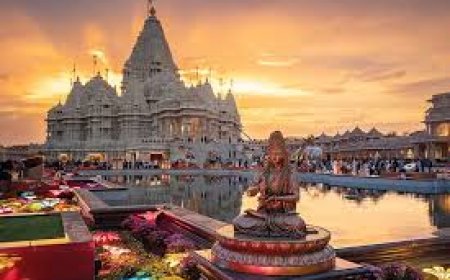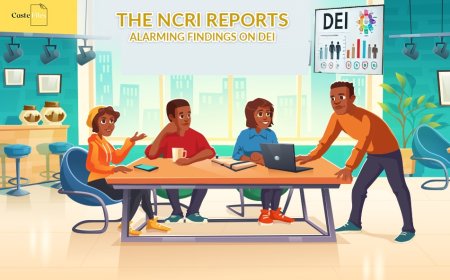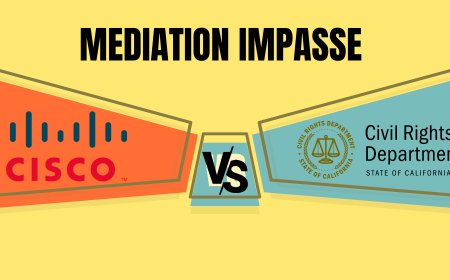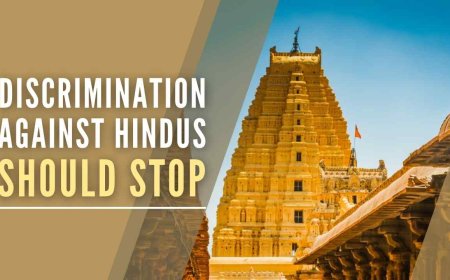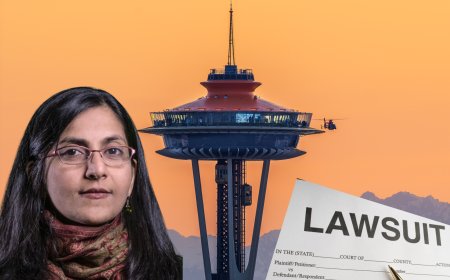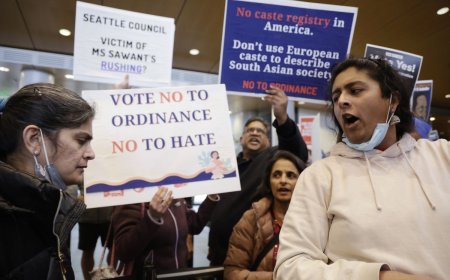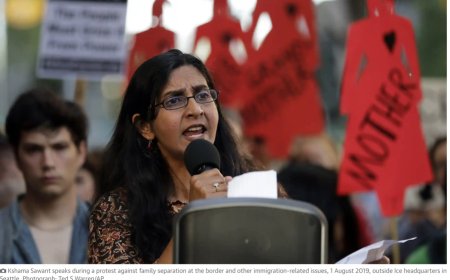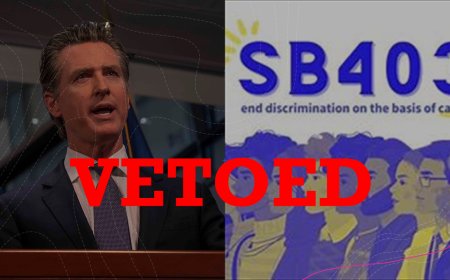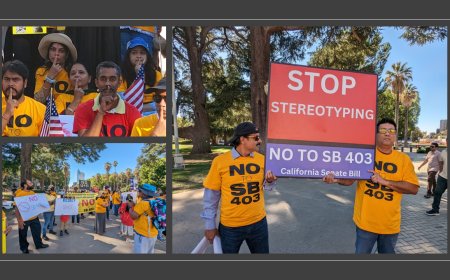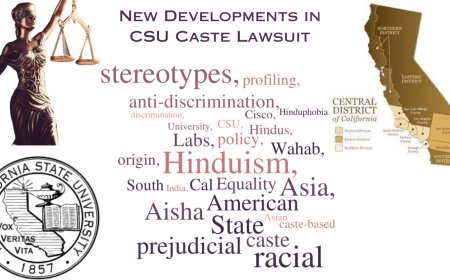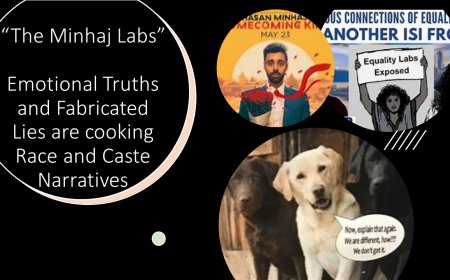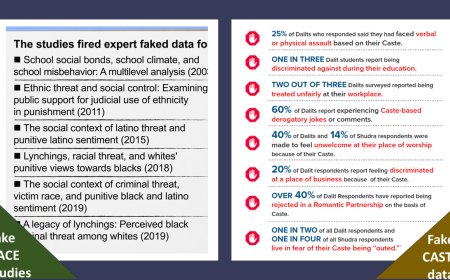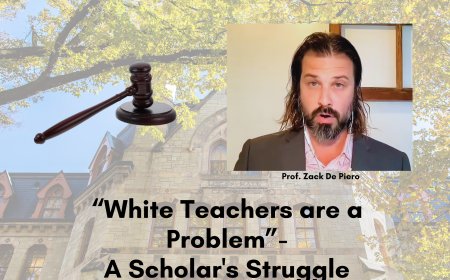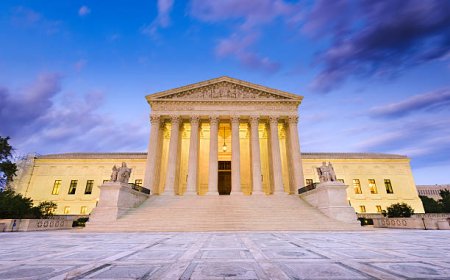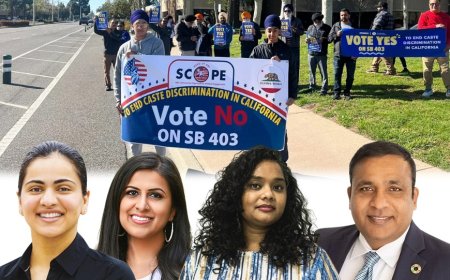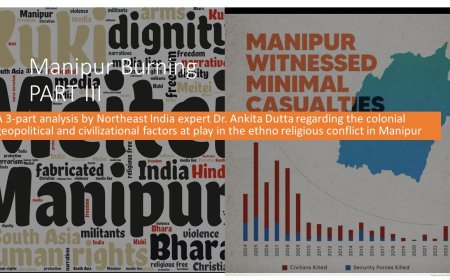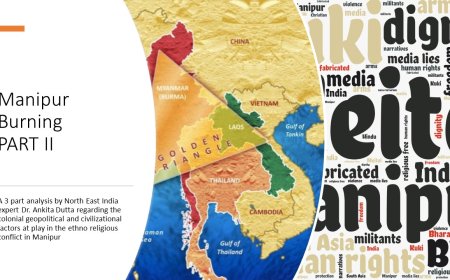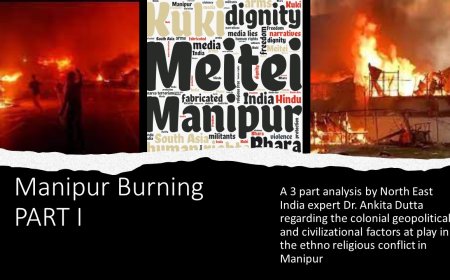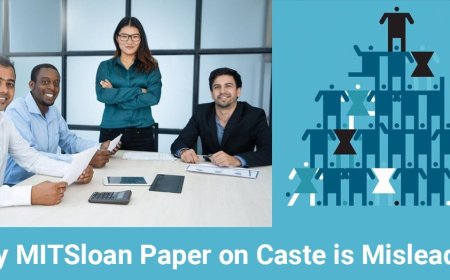The Weaponization of Caste - An Exposition Recorded for a Congressional Briefing
There is a disinformation campaign in America about the Hindu-American community which leverages caste as a weapon, but is cloaked in the finely crafted garb of social justice, explains Caste Files founder, Richa Gautam in a message recorded for a Congressional Briefing that covered the rising trends in Prejudice, Hate and Disinformation against Hindu Americans.
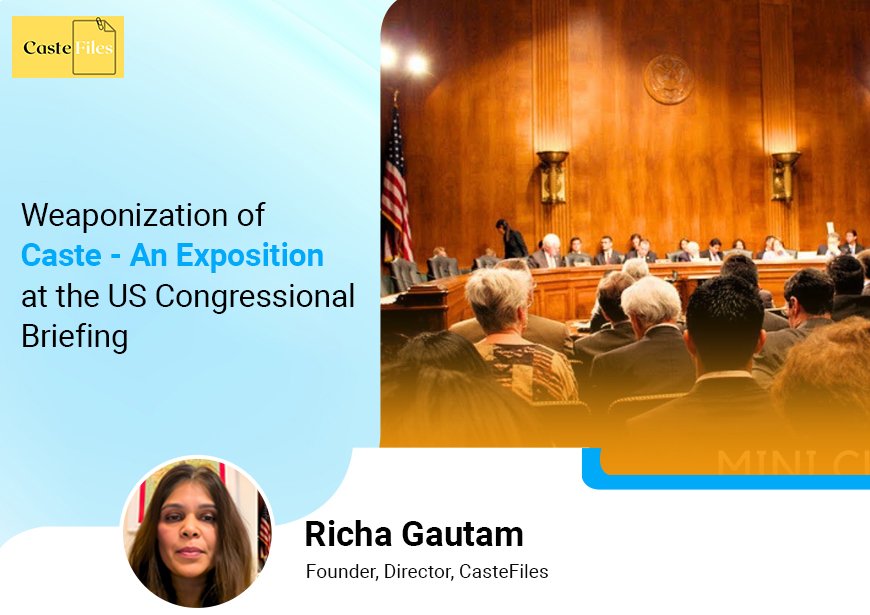
Anti-Hinduism has manifested in many forms in the United States recently, and I commend HinduAction for organizing this congressional briefing to discuss the rising trends in Hindu Hate in the USA. Prejudice, Disinformation, and Discrimination are typically the foundation of all hate.
Disinformation regarding Caste in the USA has been a wielded attack on the Hindu Community. Cloaked in the finely crafted shimmering garbs of social justice, colonial identitarian devices like Caste, Dalit, Adivasi Brahminism, and other harmful tropes brainwash innocent Americans, Indian Americans, and the youth through partial one-sided misleading stories in media and social media. What is worse, is the alarming trend to institutionalize these colonial terms that enslaved India, and add them into US civil rights policy, corporate America, and university campuses.
Sadly, only a handful of academics like Dirks speak about the colonial roots of caste in India. This is because legacy atrocity literature generated over centuries as well as newfound gizmos like Critical Caste Theory are packed into colonial utensils like Dalit and Adivasi to mainstream falsehoods about Hinduism, equating Hinduism to Casteism and Brahminism, and branding it as a hierarchical system of subjugation.
As Dirks and several scholars have pointed out, Caste was an ethnographic device to rule India's rich and diverse population- a tool for colonization. Since 2018, we are witnessing a renewed surge toward the recolonization of Hindu minds in the United States recasting Hindu Americans into colonial caste concepts yet again.
When 50-plus major American universities participate in a conference called “Dismantling Global Hindutva” which defines Hinduism using caste and other hateful Hindu tropes, it becomes even more alarming for our youth and students who study in these institutions. Caste is a forced identifier thrust upon Hindu Americans and forms the basis of a pernicious and deep-rooted Hindumisia and the weaponization of Caste in the USA.
It has manifested in the US through multiple channels of Hindu hate and Hindu marginalization.
- The most important one is that we do not have a seat at the table. Many Hindus are not allowed to tell their story and are shut out if their story does not adhere to a lopsided narrative. In many places, non-Hindus are in charge of deciding what Hinduism is, how it should be defined, and how caste policy should be authored.
- Secondly, for example, selective usage of the unscientific 8-year-old stale and non-representative Equality Labs survey is preferred by Harvard, Brandies, and California State University and is influential in crafting policy. On the other hand, the reputed Carnegie Endowment Survey presents a fair and representative survey showing a near about absence of caste discrimination in the US but is ignored.
- Even more pernicious - media stories of caste discrimination in the US are anecdotal, anonymous, and without sufficient legal standing. The legal cases that were used in media, research papers, and Ph.D. thesis on Caste have now been dismissed –the BAPS Temple case or the Cisco caste discrimination case are based on coercion as in the BAPS case or even fabricated charges (Cisco case).
- This is serious disinformation because these allegations are treated as facts, and cases, even when dismissed are often used to spread disinformation and hate against Hindu Americans using blatant falsehoods. If this is not an anti-Hindu American campaign then what is?
- Similarly, policy papers and bills are authored despite a lack of evidence of caste discrimination to mandate the appropriation of taxpayer funds.
- Disregarding that there are zero police complaints, Aisha Wahab authored SB403 in California as a necessary caste bill, alleging rampant caste-based violence, including rapes and murders on the senate floor in callous disregard for decorum and truth.
In conclusion, without a doubt, Hindu Americans are facing institutionalized hate and egregious trampling of their Civil Rights. What happened when the CRD violated and trampled upon the First Amendment rights and civil liberties of two Hindu Americans - Sundar Iyer and Ramana Kompella? Castegate.org catalogues the facts of the case in objective painstaking detail using court documents.
At the congressional briefing, a first-person account by Sundar Iyer was presented on record. Sundar is a 4-time serial technology entrepreneur who founded four startups in the past 20 years, in Network Security, Semiconductor, memory, and big data space. Three of his startups were acquired by Cisco Systems. He studied engineering at IIT Bombay in India and has a PhD in Computer Science from Stanford University. Today he is also known as the CEO and prime accused in the Cisco Caste Discrimination case. Now honorably exonerated from these false allegations, he tells his fabled story, wearing a mantle he neither wanted nor deserved. Please visit https://www.youtube.com/watch?v=jPYc9tnajOw for the recorded briefing by Sundar Iyer.
See Video:

